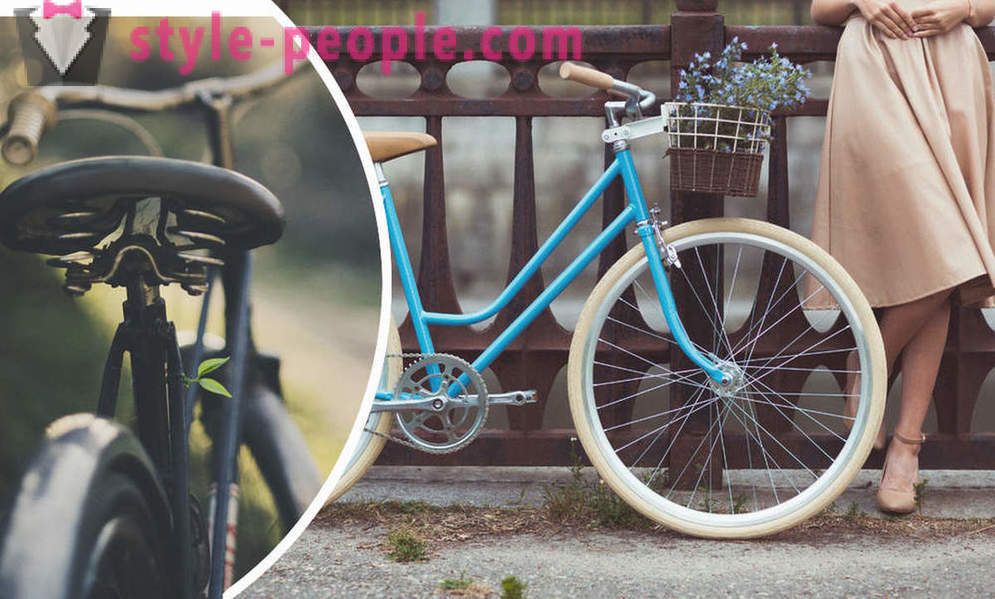12 eco-friendly habits
You can not just point the finger at factories and blame them for all environmental issues - it works in the complex. What we come to realize the processing issues, the quicker we will reduce the impact on nature, and the first step in the improvement of the environment might be changing your own habits.
1. Understand the problem of
Understanding of the problem - the first step to solving it. Study the video TED, which are devoted to the problem of environmental changes. Only realized the scale, you will realize that it's not just how to run the corporation, but also in the fact that you buy or how to throw garbage.
2. Use reusable bottles
Bottled water is an incredibly wasteful: 80% it does not receive treatment, but because of the production process takes three liters of water to produce just one.
Glass bottles retain water much longer than ordinary plastic, not to mention the fact that they can look quite cute. You can invest in a reusable thermos for coffee - in any major network like Starbucks you calmly poured coffee into their own dishes.
3. Come in second-hand

Stock shops and second-hand are not just for fans of vintage. The next time when you will seek out a new shirt or a summer dress, go to a local store and look for a new part of the wardrobe there. Not only that, it will cost you less, it is also much more environmentally friendly - think of it as a garment processing.
4. Restrict your shower
Limit the amount of time you spend in the shower. This is not only beneficial to the health of the planet, but also help to reduce your bill for hot water. Turn off the tap when brushing your teeth or cleaning dishes instead of rinsing before you load them into the dishwasher.
5. Study the labels

You can start reading the decal to see if this item is harmless enough and is subject to whether the processing. For example, choose tampons that are 100% made from organic cotton, or toilet paper from the degradable sleeve.
6. Wear your clothes
People throw away clothes and accessories at an alarming rate: according to the US environmentalists, 26 pounds of textiles sent to landfill them. Of course, you can do more for this situation by sacrificing their clothes or giving it for processing. But it does not affect the main problem - we buy a lot of clothes unnecessarily.
Conscious consumption means knowing when something really should be sacrificed, and when it can be repaired and continue to carry on.
7. Start riding a bike

If you have multiple tasks that you should perform on weekends in different parts of the city - take a bike or send them to a walk. You can use a special rental service or choose an inexpensive cruiser.
8. Buy a canvas bag
Modern companies welcome environmental solutions and maintain an environmental management system, creating a special canvas bag. Stop using packets, and, going out shopping, take only her - by the way, it does not take up so much space in your bag and can fit even in the clutch.
9. Use cloth napkins

Stop using disposable handkerchiefs or napkins rolls for cleaning, and go to the Viscose or Cotton Towels. Not only that, because you will keep the amount of debris, but also use cloth napkins can help save you money.
10. Turn off lights
A simple way to reduce energy consumption and reduce damage to the environment - just turn off the lights when you leave the room. So can you change the standard bulbs to fluorescent lamps, which have a lower energy consumption, and they are less harmful to our eyes. And when leaving the house - turns off all electrical equipment that is not used.
11. Buy local produce

A simple way to reduce carbon dioxide emissions - to buy products that are grown nearby. In fact, buying vegetables or milk is not from a company in another region, you support local dairy plants and farms, as well as reduces the amount of greenhouse gas. In addition, you can grow your own food on the window, such as fresh herbs, or some varieties of tomatoes, and share them with friends.
12. to recognize where to drop the batteries
Subscribe to the thematic community to learn about the actions of the collection and processing of hazardous substances. Unfortunately, Russia is now working only a few plants that utilize batteries, so the product collection points are opened once a month. Put reminders in the calendar and get useful bonuses for awareness of the collection companies.













































